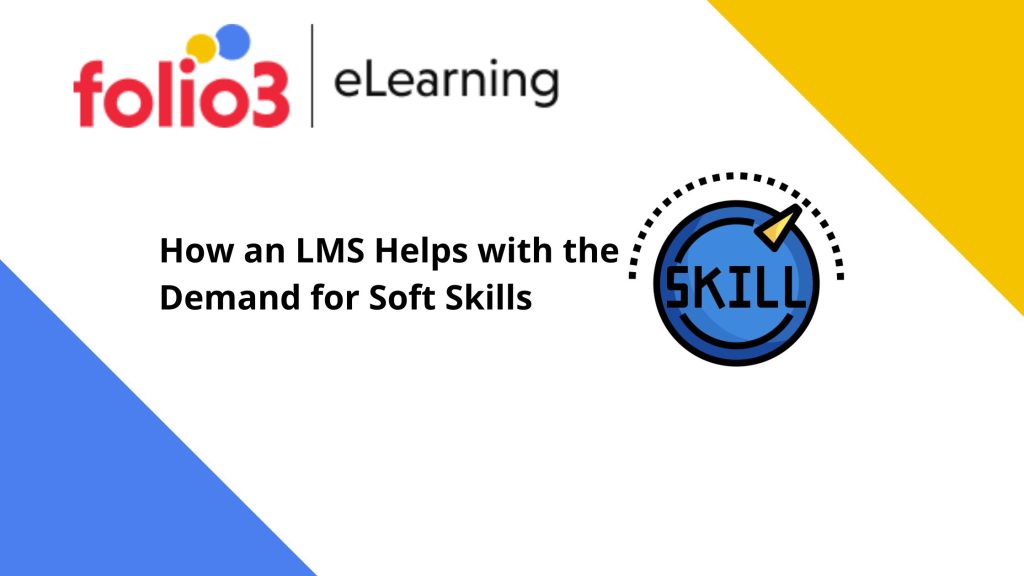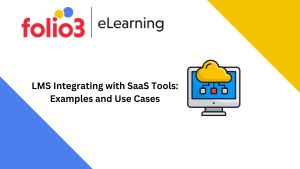
Executive Summary:
By offering a platform and tools that assist the development and assessment of these skills, a learning management system (LMS) can play a significant role in meeting the demand for soft skills.
Introduction:
Employers are increasingly recognizing the value of soft skills in addition to technical expertise in today’s dynamic work environment. For someone to succeed in the job, they need to possess soft skills including leadership, cooperation, communication, and problem-solving. Learning Management Systems (LMS) are essential in meeting this requirement as the demand for these abilities keeps growing. In order to address the rising need for soft skills training and development, a reputable Learning Management System(LMS) development business steps in and offers a thorough platform.

What are soft skills and why are they in demand?
Soft skills are the character traits, communication skills, and interpersonal competencies that enable people to successfully negotiate challenging work circumstances. The need for teamwork, clear communication, and problem-solving in organizations has made soft skills crucial for both professional and personal development. Businesses are looking to LMS development firms to close the soft skills gap in their employees as a result of their awareness of their importance.
Since they are necessary for effective leadership, teamwork, communication, adaptation, problem-solving, customer service, and innovation, soft skills are in high demand. In today’s dynamic and linked workplace, they help to create strong teams, promote great work environments, and drive organizational success.
In today’s work environment, soft skills are highly valued for a number of important reasons.
- Organizations value workers who can work well in teams due to the growing emphasis on collaborative work settings. Soft skills like empathy, active listening, conflict resolution, and communication help people work together well, exchange ideas, and contribute to the team’s success as a whole.
- To remain competitive, businesses are putting more of an emphasis on innovation and creativity. Soft talents like imagination, creativity, and the capacity to think beyond the box help people come up with new ideas, look at challenges from various angles, and promote innovation in their particular industries.
- In the workplace, emotional intelligence—which includes self-awareness, empathy, and emotional control—is highly appreciated. People with emotional intelligence possess soft talents that help them negotiate interpersonal dynamics, resolve disputes, and forge lasting bonds. They support a productive workplace, improved teamwork, and increased worker satisfaction.
- For identifying and addressing complicated problems, soft skills like critical thinking and problem-solving are crucial. People who can analyze problems, think creatively, come up with novel ideas, and make educated decisions are in high demand among employers. These abilities support increased productivity, wise decision-making, and organizational development.
- Adaptability and resilience are crucial in the quickly evolving business environment of today. People can succeed in dynamic circumstances if they possess soft skills like adaptation, flexibility, and the capacity to accept change. Employees who can pick up new abilities quickly, adapt to changing conditions, and keep a positive attitude in the face of difficulties are highly valued by employers.
The part an LMS (Learning Management System) plays in the demand for soft skills
Any organization’s LMS platform is developed, customized, implemented, and supported from start to finish by an LMS development company. Their area of expertise is developing dependable, approachable, and feature-rich solutions that allow businesses to provide learners with productive and interesting learning opportunities.
The following is how an LMS development company helps to meet the needs of soft skills:
- The creation of thorough soft skills courses involves collaboration between LMS development companies and subject matter specialists. These programs include a variety of soft skill topics, such as teamwork, emotional intelligence, communication, leadership, and problem-solving. The company makes sure the course material is interesting, interactive, and tailored to the unique requirements of businesses looking to improve the soft skills of their workforce.
- An LMS development company may offer customization options to match the LMS platform with the organization’s particular aims for the development of soft skills. They can modify the platform’s features, functions, and user interface to create a customized learning environment for each learner. This enables businesses to concentrate on the precise soft skills that they view as being most crucial and to create training programs accordingly.
- The development of soft skills frequently calls for hands-on and participatory teaching strategies. Employing a variety of learning modalities, including e-learning modules, virtual simulations, video-based learning, group discussions, and real-world case studies, LMS development companies use blended learning strategies within the platform. This combination of teaching techniques improves student involvement and enables students to use soft skills in real-world situations.
- Platform analytics and progress tracking tools are included by LMS development companies. Through tracking completion rates and performance data analysis, organizations are able to keep an eye on how learners are progressing in the development of soft skills. Organizations may adjust their training plans and assess the success of soft skills programs by using the data the LMS generates to shed light on learners’ strengths and potential improvement areas.
- The creation of thorough reports and statistics on learners’ soft skill development is made possible by an LMS development company. In order to identify trends, assess the success of training initiatives, and improve soft skills programs, these reports give organizations useful insights on the development of both people and groups.
Conclusion:
Organizations rely on LMS development for businesses to offer practical workforce development solutions as the demand for soft skills increases. These specialized companies enable organizations and individuals to improve their soft skills capabilities through tailored training and seamless learning experiences.
Keep in mind that in today’s work environment, soft skills are what really matter. Utilize the power of an LMS development company to help your organization realize the full potential of its soft skills and pave the way for long-term success.










